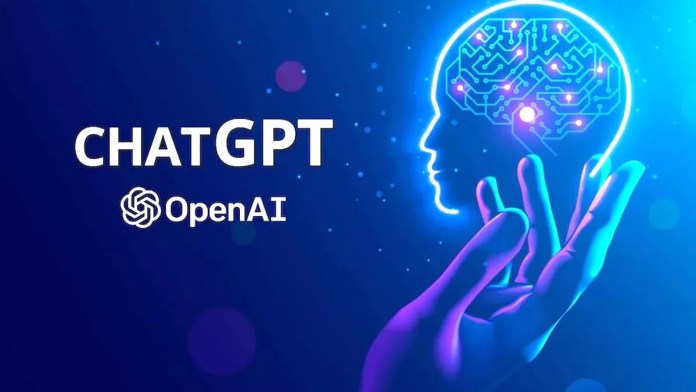- Businesses and platforms must add that element of human touch in texts and set clear boundaries between AI-written and human-written text.
Artificial intelligence, one of the latest breakthroughs in today’s society, revolutionised various industries. This groundbreaking technology is touted to be our future – a future of automation, efficiency, and personalised experiences.
Among the many subsets of artificial intelligence, language models such as ChatGPT have captured the attention of many.
This famous language model stands out as an effective tool that transforms the way we communicate, analyse data and interact with digital systems.
In this article, we’ll delve into the impact and potential of ChatGPT. But first, let’s answer the question: What is ChatGPT?
What is ChatGPT?
Launched in November 2022 by OpenAI, ChatGPT stands for Chat Generative Pre-Trained Transformer. It’s a large language AI-based model that generates human-like text based on the input it receives.

For example, if you ask for it to whip up a quick and healthy dinner recipe, it can get the task done in seconds.
Because it’s trained by vast amounts of text, ChatGPT can predict relevant responses. And thanks to the underlying human algorithms, this large language model can understand the nuances of language, making it one of today’s most powerful tools at the reach of your fingertips.
Role in modern communication
Before the inception of AI language models, human-machine interaction lacked the level of understanding and engagement that we see today. These models effectively bridged the gap between humans and machines, opening new doors of opportunities.
With the ability of ChatGPT to tailor responses depending on the input, users receive more personalized experiences. This creates more natural and organic conversations.
For example, in the field of customer support, customers don’t get the best experiences with generic answers, leading to a more impersonal experience.
Language models like ChatGPT make use of a technology called natural language processing, one responsible for providing personalised experiences. However, an issue lies with the protection of customer data.
Hence, privacy and security must be at the forefront of the development of AI technology to ensure that sensitive information remains secure.
Other industries are strongly considering incorporating ChatGPT into their operations as well. Case in point: the healthcare industry.
Therapeutic chatbots powered by ChatGPT can offer personalised mental health support by offering empathy and support tailored to an individual’s needs and emotional state.
The education sector is another one that benefits from the prowess of ChatGPT. When students need help in learning complex concepts, ChatGPT can simplify them in a way that’s palatable for their users, making learning a lot easier.
Role in business innovation
When it comes to driving business growth, ChatGPT plays a significant role. Here’s how:
Personalised Marketing: Businesses looking to ramp up their marketing, can consider using ChatGPT for personalized marketing campaigns. It can be integrated, for instance, into email marketing campaigns.
By delivering relevant marketing messages to your customers, you can increase engagements, which can ultimately lead to an increase in conversions.
In the realm of content creation, ChatGPT can assist in creating engaging content. Whether that be a how-to guide on your blog or a short caption for your social media post, ChatGPT accomplishes these tasks in seconds.
Data analysis: More and more businesses are using the power of data to make critical decisions. With the help of ChatGPT, sifting through large data sets shouldn’t be too much of an issue. The popular AI language model is capable of analysing unstructured data such as reviews and social media comments. These insights are useful for improving business strategies.
Automation: One of the biggest advantages of artificial intelligence is its ability to automate simple tasks, such as scheduling appointments. This allows businesses to allocate their resources to more critical tasks.
Ethical challenges and concerns
While the technology behind ChatGPT may be revolutionary, it isn’t as perfect as it may seem. There are lots of ethical issues surrounding the use and development of ChatGPT. Some of them can be found below:
Training data bias: ChatGPT is only as good as the data it’s trained on, and because inherent biases could be present, the output of this language model can be skewed. These biases can be cultural or gender-based in nature.
That’s why sourcing quality data is a huge issue in creating responsible AI. What’s essential is that the data is monitored regularly for the presence of any biases. For people involved in the field of artificial intelligence, this shouldn’t be just another technological challenge. Rather, it should be a social responsibility to prevent these biases from reinforcing inequalities and perpetuating stereotypes.
Authenticity and Misinformation: Because ChatGPT can generate human-like text, there is a possibility that it can be used to spread misinformation. To avoid this, we must combat the spread of misinformation and ensure the responsible use of technology.

Additionally, creating human-like content gives rise to the question: Is this content human-written or not? Businesses and platforms must add that element of human touch in texts and set clear boundaries between AI-written and human-written text.
Final thoughts
The birth of ChatGPT is a testament to the rapid advancement of technology and its ability to bridge the world of humans and machines.
With its power to analyse large amounts of data and generate vast amounts of human-like text, ChatGPT is poised to make significant strides in various domains. However, such innovation also has ethical challenges to consider in its development.
As we move further into a world dominated by AI, language models like ChatGPT will only get better – shaping our experiences and making them more efficient and personalised.
- Pauline Cruz is a passionate writer and has worked across a range of industries with a diverse skill set and a wealth of knowledge in business, marketing, technology, healthcare, education, and finance.
Discover more from TechChannel News
Subscribe to get the latest posts sent to your email.




